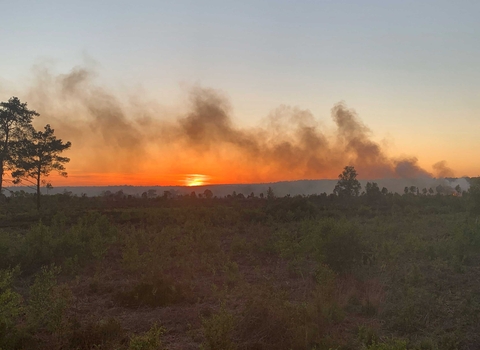The threat of wildfire
Help us protect Surrey's wild places from the threat of wildfire
A fire can move very quickly, putting lives and precious habitat at risk. Early reporting of fires can significantly reduce the damage caused, preventing it from developing into a larger incident and protecting wildlife.
Surrey's heathlands are at particular risk of wildfire from late spring, particularly during prolonged dry periods. This is due to the nature of habitat and combustibility of the vegetation.
What to do
Read our tips on staying safe in the event of a wildfire, how to report an incident and fire prevention methods.
In the event of wildfire
If you see an unattended fire, please report it straight away. Don’t assume someone else has reported it.
- Don’t attempt to tackle fires that can’t be put out with a bucket of water
- Get to a safe place
- Note the location of the fire
- Call 999 and ask for the Fire & Rescue Service
- Give as much information as you can
The local fire service will have details of emergency access points to Surrey Wildlife Trust managed sites.
In the event of arson
When a person deliberately sets fire to property or land, it is called arson. Countryside arson is a serious crime that can be fatal to humans and wildlife.
Countryside fires are especially dangerous because they can change speed and direction very quickly due to the wind.
Because arson puts people’s lives at risk, the crime carries a serious punishment, which could include up to 10 years in prison.
If you witness an act of arson do not approach or attempt to apprehend the arsonist. Dial 999 and report the fire, giving details of the offenders identity, location and how the fire was started.
Preventing wildfires
Wildfires started accidentally by people are easily avoidable if you follow a few simple rules:
- Extinguish cigarettes properly. Never throw cigarette ends onto the ground or out of car windows.
- Take your litter home. Glass bottles or reflective metals can also start fires.
- Avoid open fires and barbecues in the countryside. Always have them in safe designated areas.
After a fire
Take extra care when walking on land that has recently been burnt by wildfire.
Soils in the countryside contain organic matter such as decaying trees and plants, fungi and animal remains. A fire can smoulder underground for a long time using the organic matter as fuel, but there is not enough oxygen for the fire to burn fiercely.
If the fire reaches the surface oxygen will be available again and the fire will begin to burn more fiercely, spreading and endangering wildlife and visitors to the countryside.
Species at risk
Many animals are in danger when a fire starts in the countryside
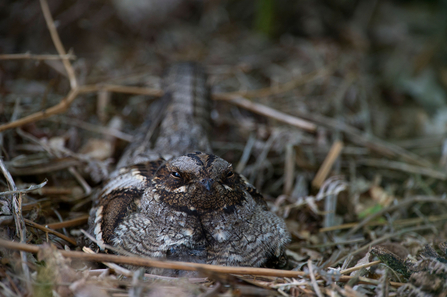
© David Tipling/2020VISION
Ground nesting birds
Some heathland birds such as the nightjar nests on the ground, so if there is a fire its eggs and young are burnt.
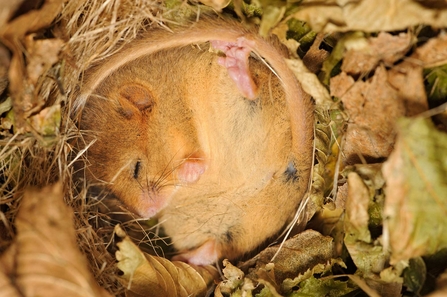
Terry Whittaker
Small mammals
Small mammals such as harvest mice, dormice and hedgehogs cannot move quickly enough to escape the flames and can be burnt alive.
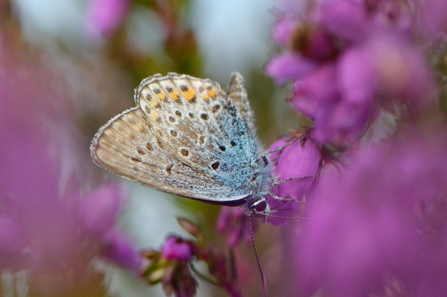
© Chris Gomersall/2020VISION
Butterfly Larvae
Although they can fly, butterflies spend part of their earlier life as a larvae and pupae. When in these stages, they cannot move out of the flames.
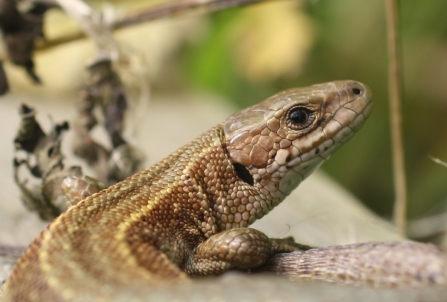
© Austin Morley
Reptiles and amphibians
Most reptiles and amphibians cannot move quickly enough to escape the flames and are often burnt alive.

© Mark Hamblin/2020VISION
Large mammals
Large mammals such as deer can escape the flames but their habitat is destroyed, reducing food and shelter.

